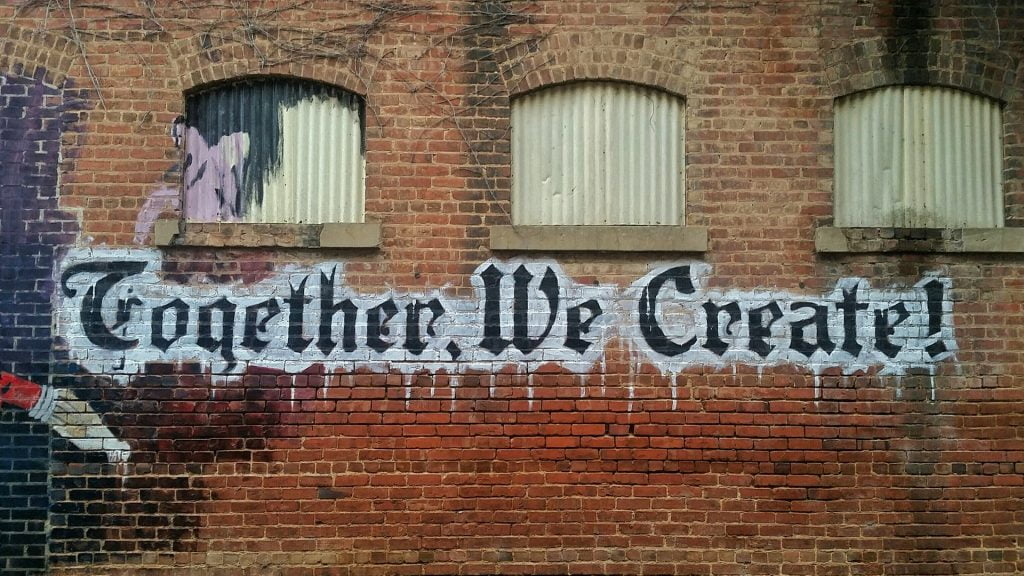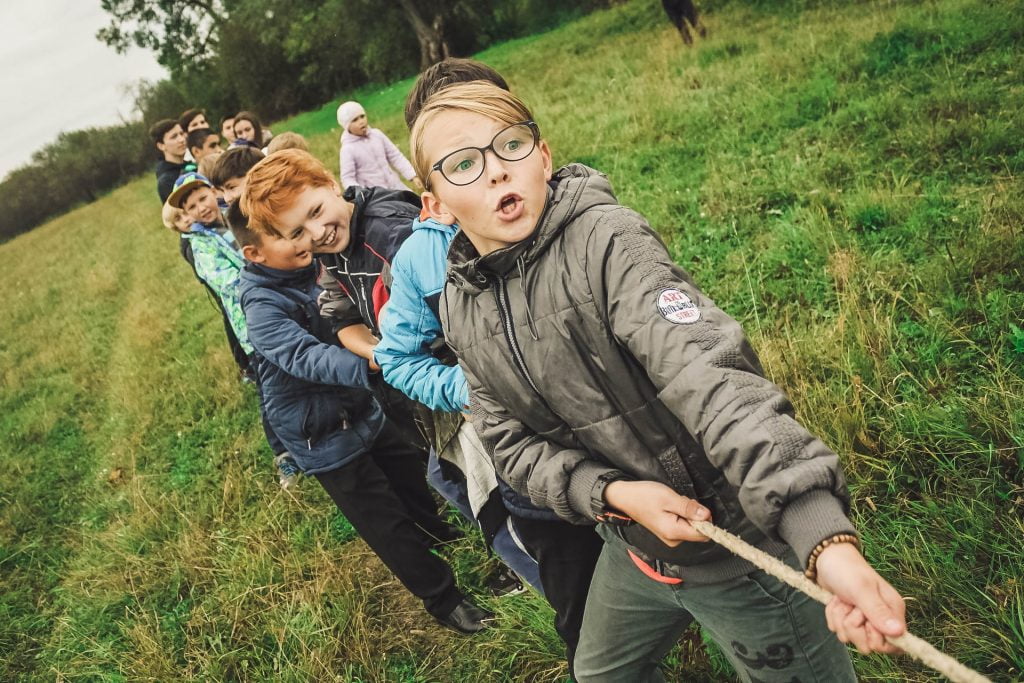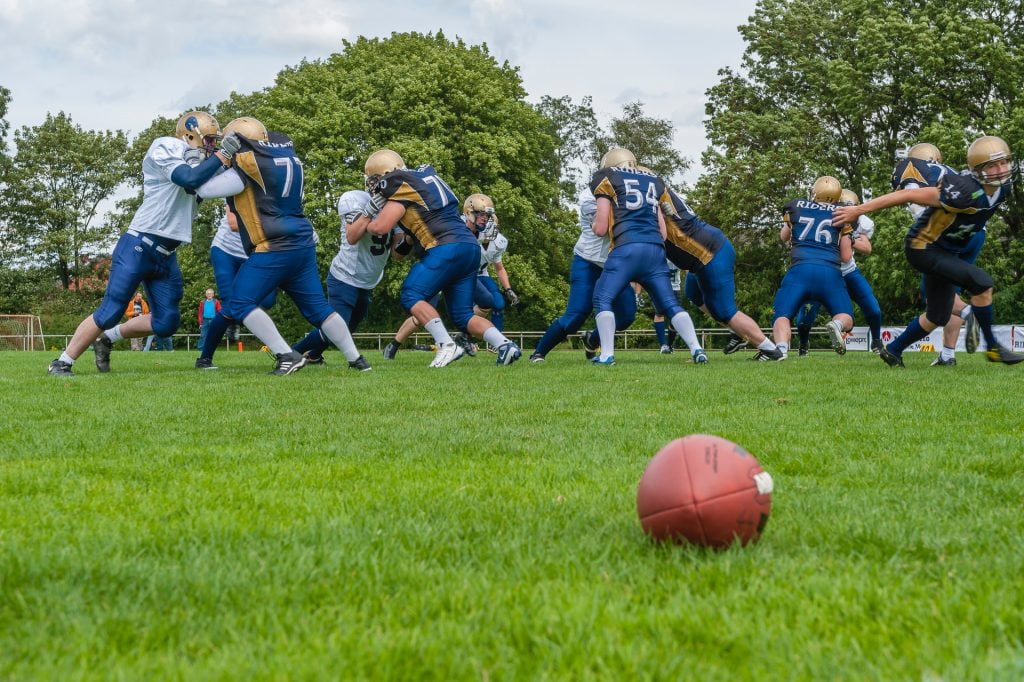Teamwork and success
Teamwork is essential for success. It is the backbone of modern society and the fundamental force that drives innovation. It’s easy to look upon movie stars, business magnates and sports legends and assume they got where they are through independent hard work. The perfect team is the perfect step to success.
However, success is rarely the result of the perseverance of just one person. When we watch a movie, it’s easy to forget about all the crew backstage who never make it on screen. The same is true of the latest technological gadget. We see the face of the brand, be it at Apple, Samsung, or any other company, and completely forget about the entire team that helped to develop the idea. For all of Bill Gates’s brilliance (and there is plenty), would he have been able to achieve his feats without the support of a successful team of software engineers, technicians, and salespeople?
Nick Hays, a former Navy Seal, explained in his book that during the most gruelling week of his Navy Seal training (Hell Week), the quitters were the ones who focused on themselves. The trainees, who bonded with the other members, were the ones who passed the training because they pushed and supported one another. It was the fear of letting down the team that prevented them from quitting.
We can always achieve more together through cooperation and a shared vision. Teamwork is the art of turning me into we.
Benefits of working in a team
When the team is strong and pulling in the right direction, there are many benefits to working in a team.
- There is more success, and the achievement of aspirational goals are more likely.
- Everyone wins. The team will support and look out for the other members’ interest and help everyone reach their goals.
- There is less stress on the individual to achieve their goals, and they feel supported in their work and less likely to suffer from burnout.
- The members of the team are happier.
- It will boost creativity as all the members can feed into each other’s ideas.

Setting up the Dream Team
A team shouldn’t just be thrown together. It is cultivated like a plant so that it can, one day, blossom like a rose.
When teams are created or a new member joins an existing team, make sure that everyone is given the opportunity to bond. It is essential for a healthy working relationship. When a new team begins its journey, whether for business, academia, or society, consider how to celebrate that fact. Celebrations are a great idea and shouldn’t just be reserved for applauding any team’s successes. A celebration when the team begins can have powerful consequences and can signify the beginning of a meaningful relationship.
Team building exercises are another excellent idea for creating connections between team members and allowing natural leaders to rise to the surface. However, they can also create feelings of dread and cynicism. If your team does these exercises, make sure they you agree to do them earnestly and considerate of each other.
Diversity Makes the Perfect Team Work
A team made up of many similar people with similar backgrounds will result in lots of similar ideas. Teams that are not diverse will often see and approach problems in the same way. Diversity can bring new ways of thinking and new tactics to solve issues. A diverse team will more likely challenge the preconceived ideas that might hold back another team.
In the 1970s, the FBI struggled to subpoena a mafia boss because his bodyguards prevented the police from getting close enough to serve it. As they could not serve the subpoena directly to him, he did not have to abide by its rules or appear in court. It was a female FBI agent, Chris Jung, who came up with the solution, where all her male colleagues had failed. She attended the Mafia Boss’s daughter’s wedding as a guest and was able to get close enough to serve the subpoena to him.
Furthermore, studies have shown that the more diverse a group is, the wiser its decisions. Non-diverse groups are handicapped because they struggle to come up with counterarguments or think unconventionally. Heterogeneous groups naturally generate more ideas and can successfully discard bad ideas through discussion.
When creating a team, don’t just consider the diversity of backgrounds. Diversity of thought is also essential. Some team members will need to think abstractly and see the bigger picture. In contrast, other team members need to be more analytical and work in the nitty-gritty of the project.
Team Culture

Great team culture is like a functioning family. Many of us spend most of our working weeks with our work team. Every member has a duty to maintain the culture. Mood ripples through a team and affects everyone—which is why we all have a responsibility to keep the atmosphere positive and constructive. Think of culture as the beating heart of the team.
A good team leader is where the culture begins. A team needs a leader that will radiate positivity and optimism and keep everyone motivated. Ultimately, The more optimistic the team, the better unity within it. The better the unity, the greater the success of the team.
Peter Drucker, the renowned management consultant, famously said that “Culture eats strategy for breakfast”. He didn’t mean that the strategy wasn’t important for a company, just that if the culture isn’t conducive to a healthy working environment, then no strategy in the world would lead to success. Culture will ultimately determine whether the strategy is successful.
A good working relationship between all members begins withs trust. As in our personal relationships, when things get tough, we all want to know that we can trust the people around us and believe they will support us. Having the ability to trust our team will also have a significant impact on our own mental health. Brain scans have shown that the body releases oxytocin, the feel-good chemical, in times of trust. This reduces our stress and improving our connectedness.
The Perfect Team Worker Traits
According to Sheryl Sandberg and Adam Grant, the traits of a true dream team are:
- Respect
- Empathy
- open-mindedness
- opened to being challenged
- a willingness to listen and learn
Respect is about considering someone else’s feeling and how our behaviour and words impact them. It is also recognising the value that someone brings to the team. With respect, we can also be more empathetic to our team members concerns and challenges. These two traits are essential for a good working relationship or any functioning relationship we have with each other. If we do not begin with these two traits, the team cannot function.
Open-mindedness is to know that someone may have approached a challenge differently and may hit upon an answer we would never have considered. It’s important to remember that no one has all the answers and that no two people think the same.
When we are open to other ideas, we must also be prepared for our beliefs to be challenged as someone else may see flaws in our reasoning. Team members need to have the humility to accept that no one has all the answers. By challenging other team members and recognising our own weaknesses, we are driving our team to success. We must be prepared to listen to what our team has to say and resolve any grey areas within our own thinking.
All members of a team must also be able to think independently. A potential pitfall of any team is herd mentality. Where the members all agree with one another through fear of not fitting in.
Constructive criticism is crucial for a successful team. It should never be avoided, even if we fear someone may take it poorly. At times and with specific team members, it may have to be said with more care, but honest feedback from a place of respect and empathy can help us grow. Learning to give and receive constructive criticism can be challenging. Still, our skills naturally improve the more that we do it.
When we imbue these five traits, the team will grow naturally. We won’t avoid uncomfortable or negative feeling, and we will air our concerns, which will push us to new successes.
Setting Powerful Team Goals to Stretch the Perfect Team

So, you have built the perfect team. The next thing to remember is the need for a purposeful goal, which will challenge and unify the team. Without a goal, the team will lack direction and may head off in different directions. Team members need to have a goal they can be committed to.
Low productivity is often caused by poor goal setting, and it is estimated to cost the UK £40 Billion every year. In many professions, employees have become wholly disengaged from their work and will only do the minimum acceptable level. This is not the employee’s fault, but the practices within their team and the employer’s relationship with its staff. Setting a goal that unifies and challenges the team is often an easy solution.
Having a shared sense of purpose helps to make our work meaningful. Through meaning will derive our energy and commitment to work. Humans want to know that they are having a positive impact on the world, and finding out how your team is doing can be one way to help build your team’s purpose.
Asking someone what they do for a living is often an indicator of how they view their purpose. How often do you hear, “I’m just a waiter”, “I’m just a teacher”, “I’m just… I’m just… I’m just”? Do these answers sound like the person is living purposefully or that they are making a difference in the world? A team should know how their work makes a difference not only to the company but also to the wider world.
When John F Kennedy was visiting NASA in 1961, he asked a janitor what he was did. He responded, “I’m helping to put a man on the moon.” The janitor understood that he was part of something bigger, he understood there was a vision, and his work gave him a purpose.
When deciding on a goal, the team must agree:
- the intention of the team- What is the goal? Use powerful goal setting strategies. Set up a meeting for more information.
- The expectations of the team members- How will the team members conduct themselves to achieve this goal?
- The actions each team member will take- Who is responsible for each part of the goal?
Arguments within a Team and how to resolve them.
Tension between team members is not always a bad thing and may show that they are working together to find a solution. This is much more desirable than a team that fails to communicate.
If the tension between the team seems like it is not subsiding, it may be helpful for the team members to swap sides and argue the other person point of view. This will have two benefits: first, it will stop the conflict from becoming personal, and the members can argue the facts and not the person; and second, it will help the team members to see the other person point of view.
Egos may also have to be reined in at times. As above, no one should assume they have all the answers. Our egos can be our biggest enemy. Learning to control it can be a powerful weapon in making us more successful and happy.
Poor communication also leads to negativity. Voids can form when we communicate too often through email instead of face to face conversations. Rumours and gossip will fill the gaps and replace the trust and cooperation that was once there. One way to build bonds between team members is to encourage everyone to take their lunch break at the same time. Eating together helps build social bonds and strengthen the trust and connection that all good teams need. However, there should be no coercion on anyone to participate in this activity, just the opportunity to do so.
When the Team is stuck
Even the most successful team will eventually go through a rough period. It may rest on its laurels and past successes. During these times, it is crucial that the team stays motivated and renew its commitment to a challenging goal. Fresh blood could also be brought on board. This can kick start a flagging team.
Having someone new who can challenge the perceived wisdom often leads to better decision making. A psychological experiment was conducted on groups who participated in a murder mystery. It found that just having a devil’s advocate who challenged all the students’ presumptions lead to better success. When a team didn’t have this player, they were more likely to make false assumptions and ultimately finger the wrong killer.

5 essential skills for successful collaboration
Finally, Mark W. Tamim and Ronal J Luyet identified five essential skills for successful collaboration within a team. It is a valuable book with great insights.
- The members of the team need to have the right mindset. The team members should be open to the views of others and not be defensive or self-interested. With a collaborative mindset, the team will cultivate success and be open to cooperation.
- Honesty is an essential element of any team or relationship. Everyone must be aware of what the other team members are thinking. Suppose someone is struggling with a deadline or is facing a problem. In that case, it is also imperative that the person can feel they are supported and can be honest about their struggle. If someone is struggling, it should be discussed openly to prevent a more significant problem later.
- Team members should practice active listening. This means turning away from our devices and any boundaries between you and the person you are communicating with. If you are listening, adopt a tell me more attitude. You will empower the person you are listening to, making them feel confident and valued.
- Every team member needs self-accountability. We all make choices throughout the day; we must accept these choices and recognise we all make mistakes. If we practice the first three skills, this will come naturally because we will be less likely to blame others or make excuses for a poor decision.
- Finally, team members need to be self-aware. This means knowing the kind of person you are. Do you know what motivates you? What are your fears? What are the things you want to achieve? Once you are more aware of the kind of person you are, you can learn flexibility. One of the fundamental principles of success for NLP is the Law of Requisite Variety. This states the person who has the most flexibility is also the person who has the best success.
Further reading and coaching
Hopefully, you have gained something for your future team projects. If you are looking to build some of these skills within a team or create an effective collaborative team, coaching could be the next step. Have a free chemistry session with me, and let’s see what we can do together.
If you are interested in further reading about great teams, five books I recommend are:





